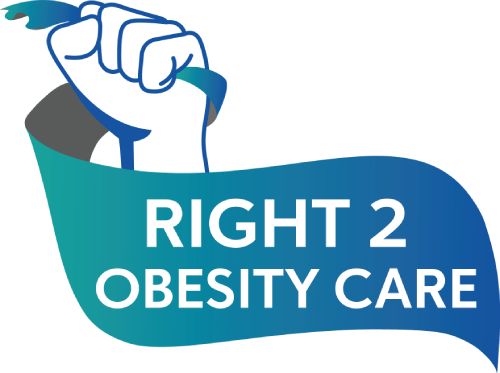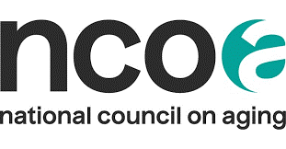The National Consumers League and National Council on Aging worked with health leaders and obesity specialists to establish a set of rights so people with obesity will be screened, diagnosed, counseled and effectively treated for their overweight and obesity based on medical treatment guidelines.
Join the Movement
For too long, people with obesity have been discriminated against, not treated with respect by their health providers, and have faced significant hurdles to receive obesity care. This is the reason there is an Obesity Bill of Rights so all Americans seeking care will be diagnosed and treated for their obesity regardless of their age, gender, ethnicity, and weight status.
But putting the Obesity Bill of Rights into practice necessitates widespread support for meaningful change. And this is where Right2ObesityCare enters the picture. A new social activation effort headed by the National Consumers League and the National Council on Aging, Right2ObesityCare will drive adoption of the Obesity Bill of Rights in communities across the country by tapping the energy of people with obesity, caregivers, health professionals, community leaders, employers, and obesity and chronic disease organizations to demand better obesity care and call for the removal of regulatory and insurance obstacles that keep many people with obesity from getting the treatments prescribed by their health providers.
You can join with individual citizens and almost 60 national organizations in championing the Obesity Bill of Rights by joining the Right2ObesityCare movement. Here is how you can get involved:
The Obesity Bill of Rights
The Obesity Bill of Rights envisions a future where more than 100 million adults in the US will lead healthier lives because they have these eight essential rights to be diagnosed, counseled, and treated for their obesity according to medical guidelines.
Why Now?
Obesity is a treatable chronic disease, just like diabetes and heart disease. Yet despite significant advances in the science of obesity and effective treatment options, only 10% of people with obesity get help from medical professionals and as few as 2% are treated with new anti-obesity medications.
The new Obesity Bill of Rights will ensure that Americans living with obesity have the same respect, attention, and medical care for their disease as those with other chronic conditions.
Comparing Obesity to Other Top Chronic Diseases
THE TOLL
U.S. adults have obesity
Chronic diseases are worsened by living with obesity
Take Action
The purpose of the first-ever the Obesity Bill of Rights is to give the public the power to fight for better care for Americans with obesity. There are many ways to get involved as an individual to educate, support, and advocate for individuals affected by obesity:
Start with Your Own Obesity Care Coverage
One of the best ways to advocate for better obesity care is to review your health insurance plan. The Obesity Action Coalition (OAC) has detailed information on what to look for and what to do if your plan restricts or excludes obesity treatment. Don’t throw up your hands because there are steps you can take.
Here is the link for more details: https://www.obesityaction.org/action-center/how-to-review-your-health-insurance
Tell the Centers for Medicare & Medicaid (CMS) to Expand Coverage for Obesity Care
It is hard to believe but right now, Medicare does not cover all obesity treatments, which makes quality care unaffordable for many older adults. CMS has opened a 60-day public comment period so those speaking for people with obesity can submit feedback on the Proposed Rule. Use this opportunity to lend your support for expanded coverage for obesity medications under Medicare and Medicaid. Click this link for more information.
Take a Stand at the State Level
In many states, lawmakers are considering legislation or regulations that would expand obesity care for state workers or adult residents and/or protect people with overweight or obesity from weight-based discrimination, bias and stigma. More information on how you can help is available from the Obesity Action Coalition.
Here is the link to get involved: https://www.obesityaction.org/action-center/state-advocacy-action


